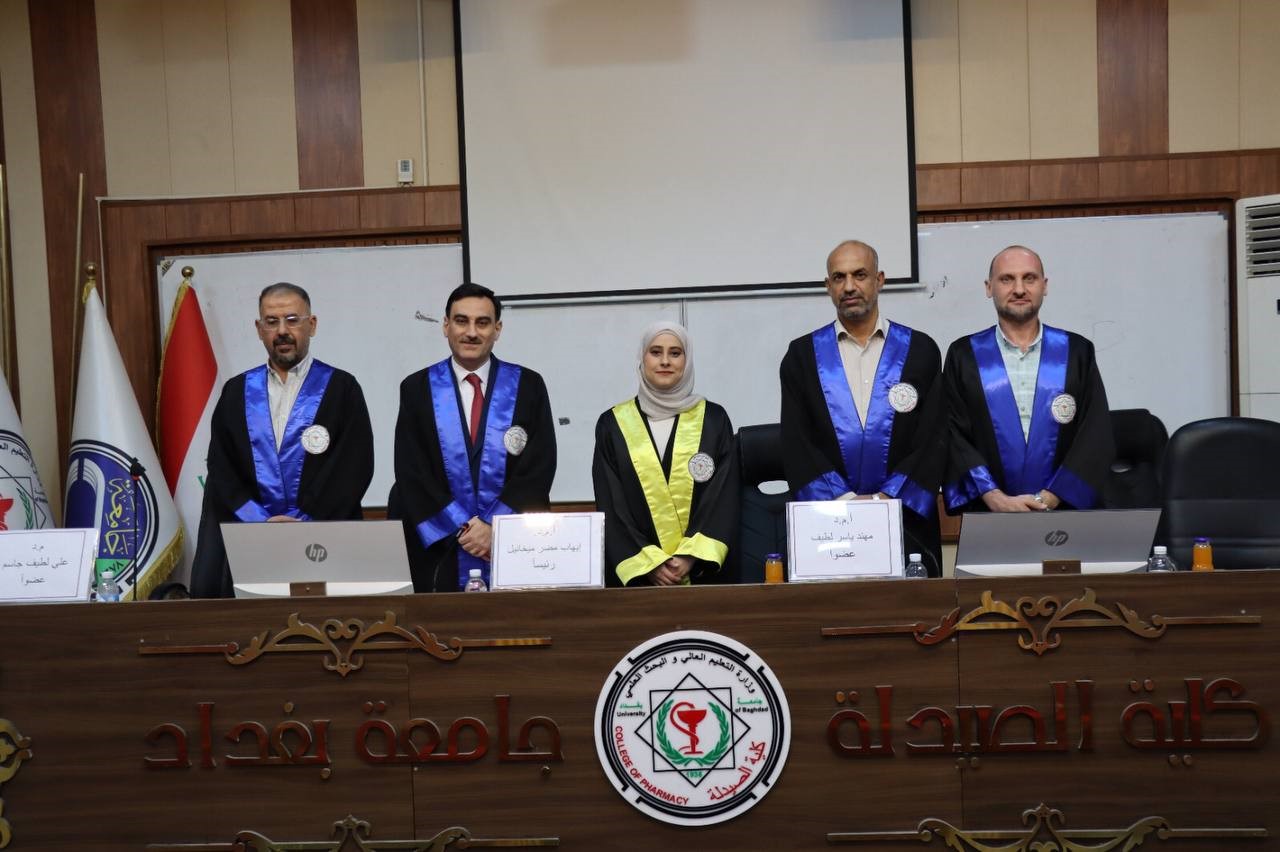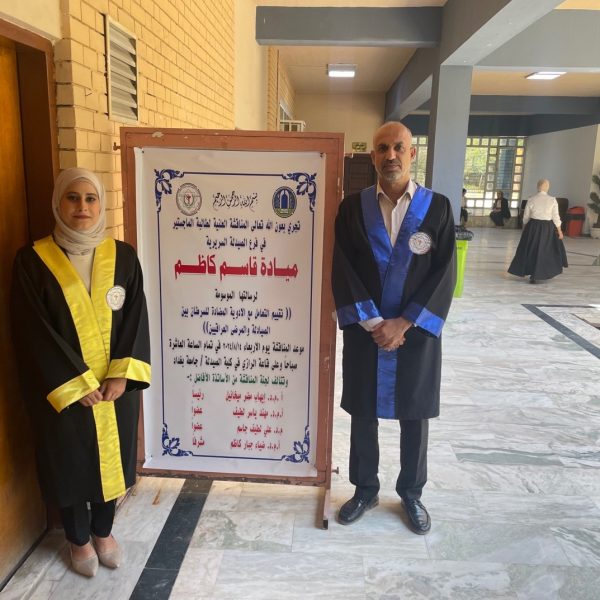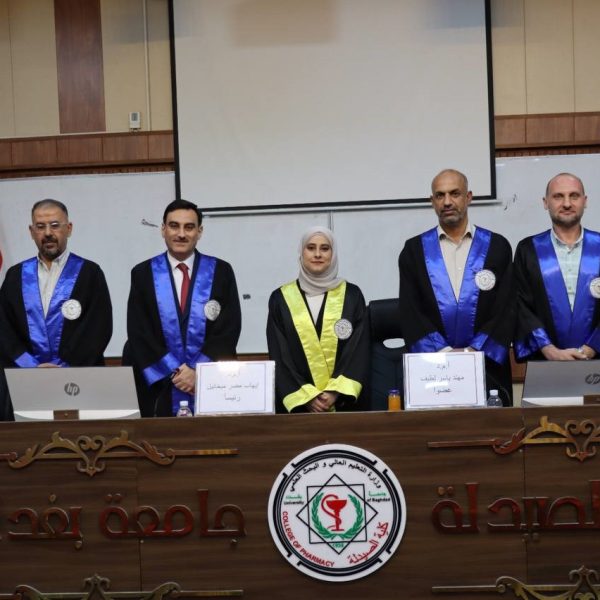The College of Pharmacy discussed the MSc thesis entitled “Assessment of Dealing with Anticancer Medications among Iraqi Pharmacists and Patients” by the student Mayyadah Qasim Kadhim and the supervisor Assistant Professor Dr. Dheyaa Jabbar Kadhim, at the Clinical Pharmacy Department. The study is composed of two parts, the first part is related to pharmacists and aims to assess pharmacists’ knowledge and practice regarding safe handling of anticancer drugs. The second part is related to patients and aims to assess the handling, storage, and disposal practices of oral anticancer medication among cancer patients at home. This was a cross-sectional study conducted from December 2023 to February 2024. Regarding the pharmacists’ part, the study was conducted at seven major hospitals in Baghdad, Iraq. The questionnaire comprises knowledge of the safe handling of cytotoxic drugs and thoughts about exposure and risk, practices for safely handling cytotoxic drugs, and challenges for safely handling cytotoxic drugs. Regarding the patients’ part; the study was conducted at Hematology and Bone Marrow Transplant Center in Baghdad, Iraq on adult cancer patients who were administered oral anticancer. The questionnaire comprises handling, storing, and disposal practices of oral anticancer drugs. The study concluded 126 pharmacists and showed that less than half of the participants (46%) received training on anticancer drugs. More than a third (42.9%) of the pharmacists were handling more than 100 cytotoxic preparations weekly. The total knowledge score was 7.14 while the total practice score was 73.36 with less than half of the pharmacists having good knowledge (44.44%) or practice (48.41%). Pharmacists receiving training had significantly higher total practice scores than those without training. Pharmacists with More than 100 weekly preparations were more knowledgeable than those with 50-99 preparations. Regarding patients, a total of 300 patients were enrolled in the study. Concerning handling practices, most patients (96.7%) never wore gloves. Among all patients, (53.3%) reported “Never” washing their hands after taking oral anticancer medications. Additionally, (90%) of the patients indicated that they had never received information on the proper handling and storage of oral anticancer medications. Concerning storage practices, storage of oral anticancer drugs in the fridge was reported by (24%) of the patients. Concerning disposal practices, most participating patients (86%) reported not having any expired, unused, or extra medicines. However, (8.3%) of patients dispose of unused medicines in the trash, while (4%) return them to either the medical clinic or the pharmacy, and (0.7) flush them down the toilet. Patients of younger age were significantly more likely to dispose of extra/expired oral anticancer medications in the trash than other age groups. Pharmacists in the oncology unit have unacceptable knowledge and practices about handling anticancer drugs. Training is needed to improve knowledge and practices regarding anticancer handling. In addition, the current findings of this study propose that patients’ practices of handling oral anticancer medicines contradict the published recommendations. Consequently, there is a need for proper and comprehensive education through the use of different formats (written, video, and verbal) to reduce the risks associated with exposure to these medications at home.




